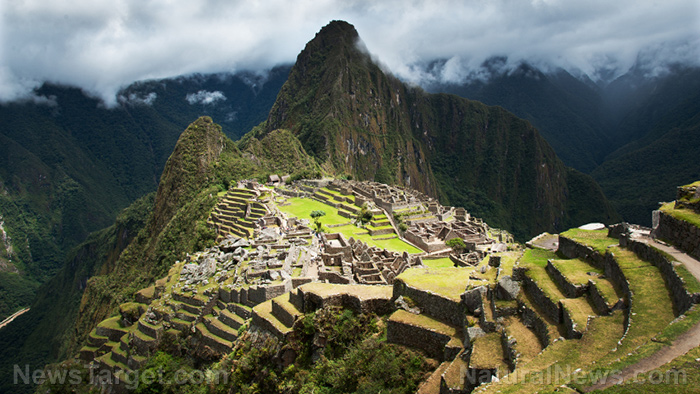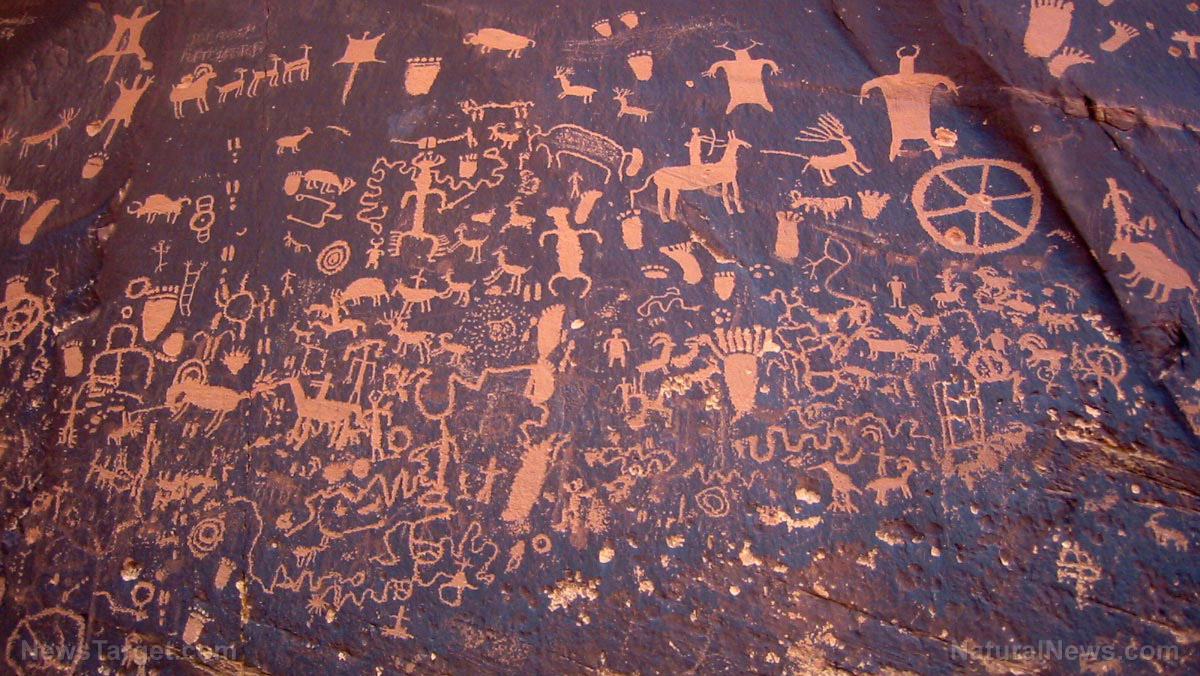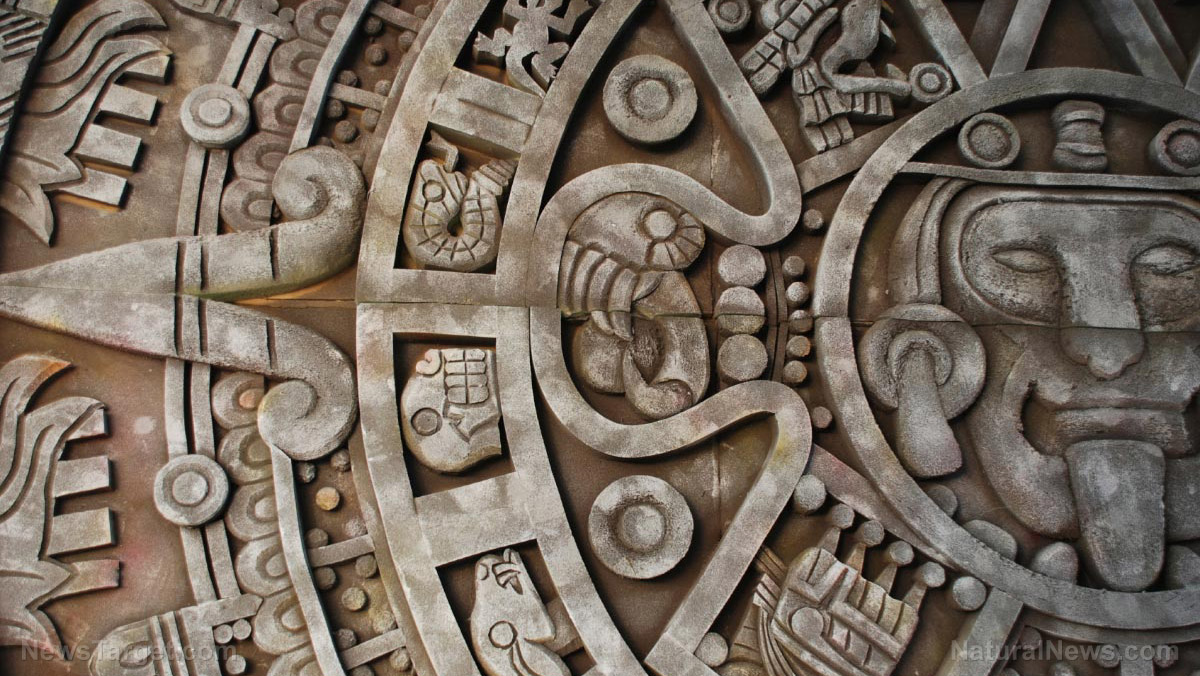5 Hidden ancient civilizations discovered by laser technology
01/12/2023 / By Kevin Hughes

In the past few years, archaeologists have used lasers to discover previously hidden ancient civilizations.
This laser technology, called light detection and ranging (LiDAR), employs planes or drones to beam thousands of laser pulses from the sky to the ground below. These pulses penetrate through the thick, deep forest covering – which researchers then use to generate three-dimensional maps beneath the vegetation that reveal human-built structures.
Here are five early civilizations whose ruins in Latin America were found using advanced LiDAR technology.
Secret 2,000-year-old Mayan civilization in northern Guatemala
Utilizing laser pulses, researchers discovered a 2,000-year-old Mayan civilization in northern Guatemala. From their topographical maps of the region, they found that the civilization was composed of 417 cities, towns and villages scattered across 650 square miles.
The community had dozens of ball courts and 110 combined miles of passable causeways that permitted ancient Mayans to travel.
478 Long-forgotten Maya and Olmec ceremonial sites in Mexico
Researchers discovered 478 Mesoamerican sites in the Mexican states of Tabasco and Veracruz, scattered across a 32,800-square-mile area where the Olmec and Maya civilizations developed. The discovery, according to the researchers, helps archeologists link the Olmec and Maya cultures.
Anthropologist and research team member Takeshi Inomata of the University of Arizona remarked: “It was unthinkable to study an area this large, until a few years ago.” (Related: Ancient “embassy” in famed Mayan city hints at two allied states turned bitter foes.)
More than 60,000 unidentified structures hidden in the Guatemalan jungle
Back in 2018, researchers tapped LiDAR to map out a jungle in Peten, Guatemala – the site of a previous Mayan settlement. They found 61,480 long-lost roads, foundations for houses, military fortifications and elevated causeways – all dating back to the Mayan Late Classic Period between the years 650 and 800.
“Seen as a whole – terraces and irrigation channels, reservoirs, fortifications and causeways reveal an astonishing amount of land modification done by the Maya over their entire landscape on a scale previously unimaginable,” Tulane University anthropologist and research team member Francisco Estrada-Belli said in a statement.
81 Earthworks, fortified villages and roads deep in the Amazon rainforest
Also in 2018, archaeologists used LiDAR to uncover 24 sites with 81 earthworks – comprising interlinked roads and fortified communities built on mounds in Brazil’s Mato Grosso state. According to Insider, the archaeologists believe that the structures may have supported an intricate civilization with a one million-strong population between 1250 and 1500.
“It seems that it was a mosaic of cultures,” Jonas Gregorio de Souza, a member of the team that found the Mato Grosso structures, told the Wall Street Journal in 2018.
Large ancient civilization concealed in the Bolivian section of the Amazon
LiDAR uncovered the hidden ruins of 26 indigenous community sites that flourished in the Amazon rainforest more than 600 years ago in Bolivia. The communities that also built stepped platforms and 72-foot-tall conical pyramids were from the Casarabe culture, which occupied a region of nearly 1,700 miles between the years 500 and 1400.
“Our results put to rest arguments that western Amazonia was sparsely populated in pre-Hispanic times,” researchers said in a May 2022 study published in Nature.
Follow Discoveries.news for more stories about ancient civilizations.
Watch this video about 10 mysterious lost civilizations.
This video is from the AncientCivilization channel on Brighteon.com.
More related stories:
Ancient Maya civilization purified water using filtration system made of crystal minerals.
Archaeologists uncover remains of mysterious Mayan queen in underground pyramid in Guatemala.
Ancient ingenuity: Amazon tribes built fishponds to survive long droughts.
Experts unearth unique leather scale armor at 2,500-year-old Chinese burial site
Sources include:
Submit a correction >>
Tagged Under:
Ancient civilizations, ancient history, Archaeology, artifacts, breakthrough, discoveries, hidden civilizations, Latin America, LIDAR, real history, research, ruins, technology
This article may contain statements that reflect the opinion of the author
RECENT NEWS & ARTICLES
COPYRIGHT © 2017 RESEARCH NEWS




















